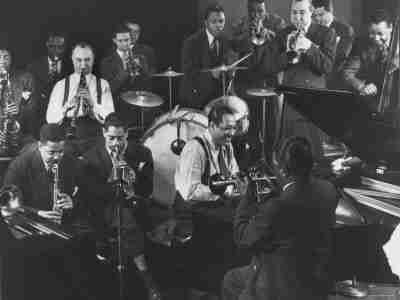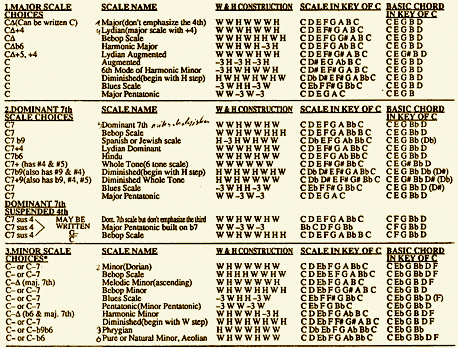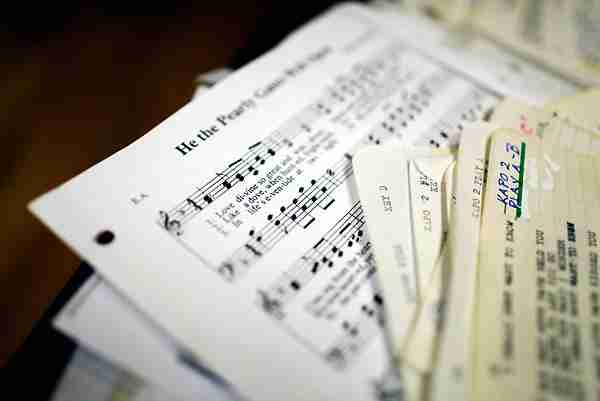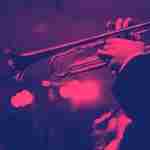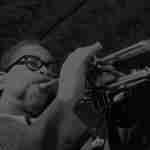When your goal is to improve at a skill like improvisation, you will stop at nothing to gather as much information as you can. Your search leads you in every direction: out of print books, the method books that the masters studied, seeking out jazz gurus and famous teachers, and searching for bootleg recordings. Along the way you pick up stories and legends, “jazz folklore” if you will.
Some of the stories are surprisingly true and others are mere exaggerations. Some stories have been stretched and altered to the point, that when they finally reach you, there’s not one ounce of truth left in them. Sometimes we only get a small piece of a story, a half-truth, and we set out to follow this example, only to find out later that this goal that we set out trying to attain was in fact, an urban legend.
Because these stories can have a powerful effect on us as we set our personal goals and head into the practice room, it’s important to separate fact from fiction. A simple misguided, but well-intentioned belief, can lead us in the completely wrong direction and cost us valuable time and effort in learning how to improvise.
In Mythbusting the Top 5 Myths about Jazz Improvisation, five common misconceptions about learning to improvise were discussed in detail. Here are four more jazz myths to keep in mind as you head into the practice room and onto the stage.
1) All the practice you need is going to jam sessions
“Charlie Parker discovered his new harmonic concept while playing Cherokee at a jam session! ” Hearing a story like this, it can seem like the jam session goes hand in hand with learning jazz and developing as an improviser, and this is true to a certain extent.
Jam sessions are a great place to meet and play with other musicians while testing your skills and knowledge of tunes, however, that is after you’ve done the work in the practice room. If you think you can go to sessions as a replacement for serious individual work in the practice room, you’re in for a big surprise.
More and more, many younger players think that they can hang out at sessions instead of practicing. You see your friends, you stumble over tunes you don’t know, you have a couple of drinks…sounds like fun, right? But let’s be honest, this is not exactly a great practice environment. In the end, there is no substitute for focused time with your instrument in the practice room.
However, if you approach jam sessions in the right way, you can greatly improve. When you’re at the session, listen to the advice of more experienced players and take note of the areas that you need to work on for your next practice session. Aim to go in with a mental plan.
Write down the tunes being called that you don’t know, isolate the sections of tunes that you’re having trouble with ( “Man, I was really stumbling over those chromatic ii-V’s.”), and take note of the good and bad qualities of the other musicians that you want to either incorporate or avoid in your playing (“I loved how that guy was using those fourth sequences on the blues” or “Wow, the sound of that tenor player was horrible!”).
The next time you get into the practice room start learning those tunes you didn’t know, work on some chromatic ii-V’s, go to the piano and figure out that fourth sequence, and really focus on playing with a great sound at all times. When you approach a jam session like this, you’re going to get way more out of the experience than just showing up and randomly playing over a few tunes and calling it a day.
2) If you transcribe solos, you’ll automatically get better
Transcribing solos is a great way to learn language and improve your overall level of improvisation, but just learning the notes off of the record and writing them down will not guarantee improvement. This may come as a shock to some because it seems like the main point of any text on improvisation can be reduced to one word: transcribe.
Transcribing is a very beneficial process in learning how to improvise, but you must first understand what is entailed in the transcription process. Many beginning players, my former-self included, hear about transcribing and think that if they can learn a solo note for note, or better yet, learn them from a book of transcribed solos, that they will suddenly discover some secret about improvisation and automatically become great improvisers.
The key to the benefits of transcription come after you’ve learned the solo note-for-note from the record by ear. This is a point that a lot of people never get to – after all they’ve completed the transcription and their work is done, right? Actually, this is where the work begins.
There are actually a number of stages to learning language from a record. The way that you develop and incorporate this language is just as important as learning the actual solo itself from the record. Avoid the trap of just getting the notes and moving on. By spending the time to develop those devices that you’ve extracted from the record, you’ll change your playing in a huge way.
3) Primarily relying on music theory to improvise
One of the drawbacks of jazz education in a lot of schools is that so much emphasis is placed on theory. Before we even get to our instruments we are obsessing over dorian modes, altered scales, secondary-dominants, and, octatonic scales. As a result, the act of improvisation becomes this mental whirlwind of scales, triads, and arpeggios. The next jazz myth to watch out for is the belief that memorizing scales with be the answer to your improvisation problems.
I used to be stuck in this mindset. I thought that if I could learn every possible scale, memorize every tricky substitution, and visualize every alteration in my head, that I would in-turn be sounding great over every tune I played on. For example, on a blues I would think “OK, mostly V7 chords, I can us a Lydian dominant scale on that chord, then play a diminished whole tone scale, then an altered scale – which is a melodic minor scale starting on the seventh degree, then …”
Before I knew it, the solo was over and I had barely created a coherent phrase because I was too busy thinking about scales. This is definitely not the way to think when you’re soloing.
Improvising is so much more than knowing and regurgitating music theory. You need to develop your ears, you need to learn how to phrase, you need to work on articulation, you actually have to say something in your solo instead of fitting in memorized scales to corresponding chords.
Theory can aid your improvising, you just have to use it in the right way. Work out these scales and patterns in your technical practice, get them under your fingers in all variations, go to the piano and play these sounds, hear them and sing them, create your own patterns – then apply this knowledge to your improvising.
4) The way to improve at playing changes is to learn a bunch of tunes
A lot of emphasis is placed on learning tunes in jazz, especially if you’re frequenting the aforementioned jam sessions on a regular basis. Because of this, many students think that if they keep learning more and more tunes, eventually they will start to sound better playing over chord progressions.
However, this is where the old adage “less is more” comes into play. Even though it seems counter-intuitive at first, taking in more information (more tunes) in this case is not beneficial. Because so many jazz standards share the same basic types of chord progressions, you can apply the same techniques to the majority of tunes that you come across.
Instead of learning tune after tune, memorizing endless melodies and chord progressions, take one tune and learn it completely. Learn the melody from the record, figure out the chord changes by ear, practice navigating the chord progression, and incorporate the language that you’ve transcribed.
Once you do this, you’ve developed techniques that can be applied to all of the tunes that you learn. Rather than knowing 50 tunes and barely being able to improvise over them, learn a few extremely well. The techniques and skills that you develop on those couple of standards can then be applied to any tune that you learn in the future.

